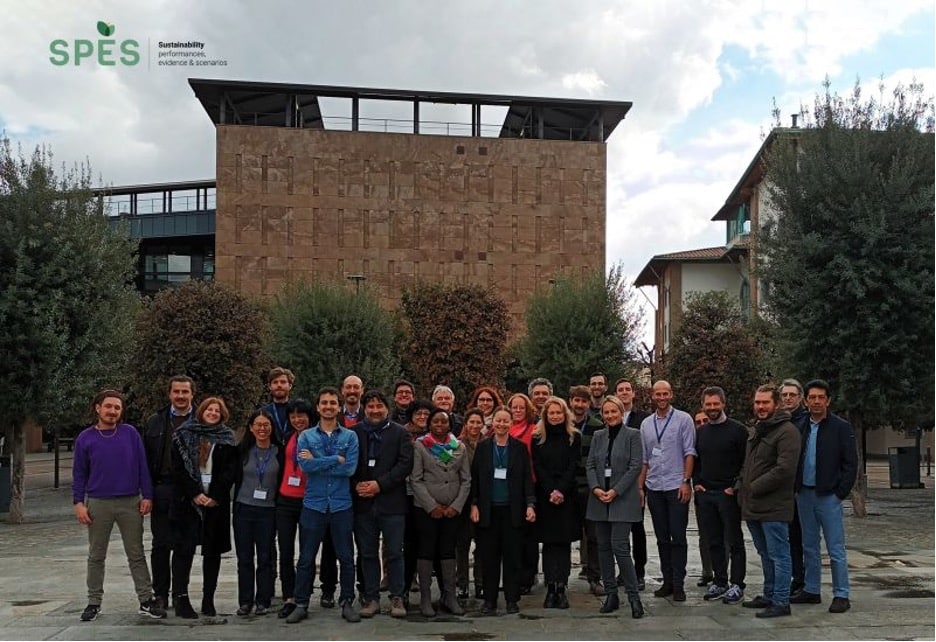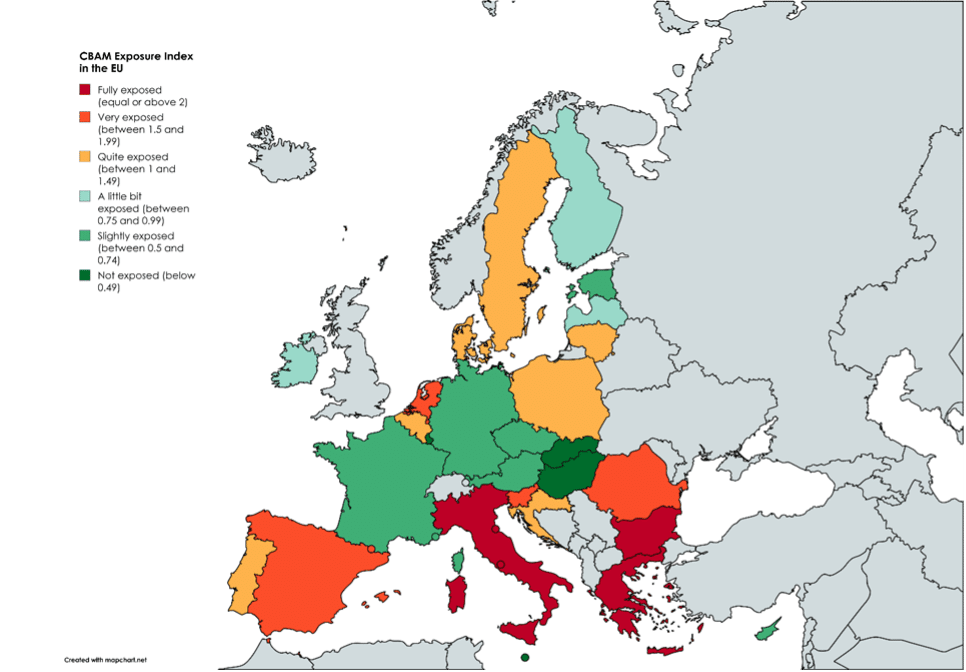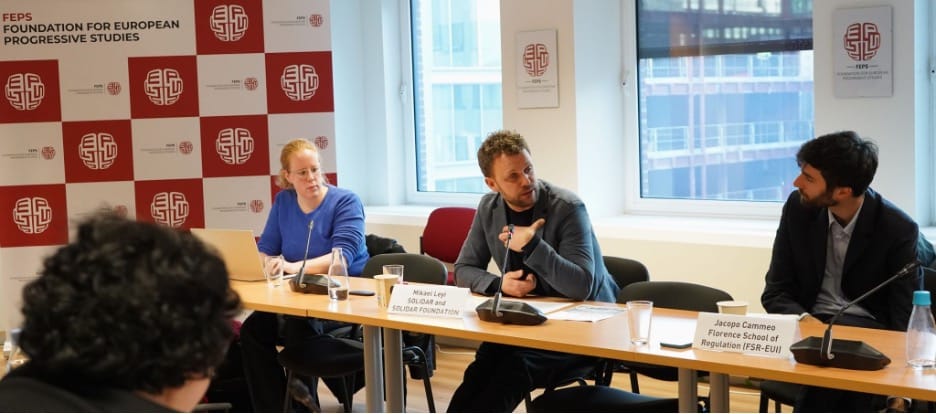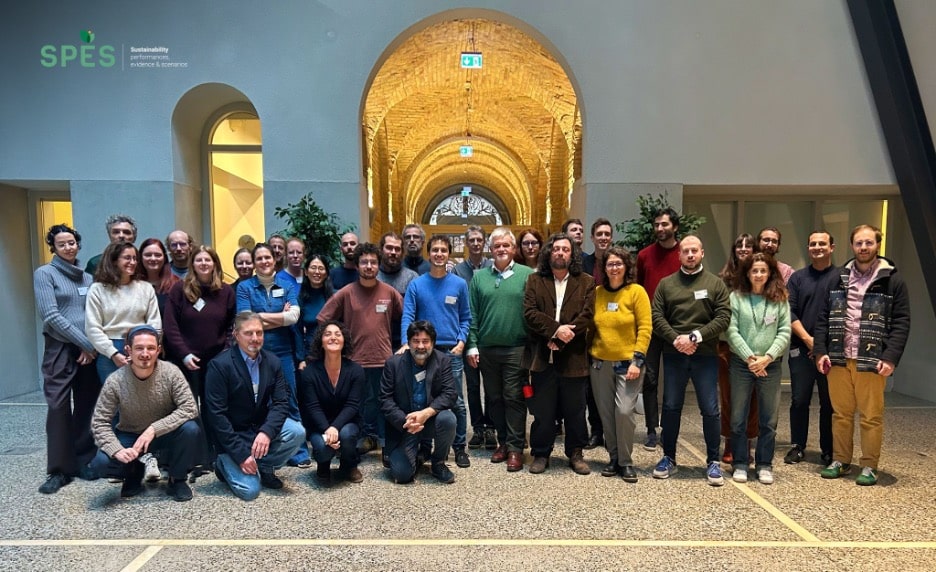From carbon markets to climate justice: FSR journey in the SPES project
This is the third installment of the Topic of the Month: FSR research in action
Sustainability Performances, Evidence and Scenarios (SPES)
The European Union stands at a decisive moment in its climate journey. After two decades of building one of the world’s largest carbon markets, Europe’s challenge is not only to cut emissions but to do so fairly. In the third installment of the Topic of the Month focusing on FSR Research in action, we focus on the Horizon Europe project Sustainability Performances, Evidence and Scenarios (SPES), which explores how climate action can be environmentally effective, socially just, and economically sustainable.
The SPES project runs from February 2023 to January 2026. It is coordinated by the Università degli Studi di Firenze (Italy) and brings together a consortium of 12 partners, including the Florence School of Regulation of the European University Institute.

Within SPES, the FSR Climate team has researched the functioning and effects of two of the EU’s key climate instruments: the Emissions Trading System (ETS) and the Carbon Border Adjustment Mechanism (CBAM). The research was conducted under the scientific supervision of Simone Borghesi, Director of the Climate area, with Jacopo Cammeo leading research activities and Albert Ferrari coordinating policy impact. In addition to collaborating on various project tasks, the FSR Climate took the lead on Work Package 7 on climate policies. They produced two working papers and one policy brief.
Reflecting on the European carbon markets
The SPES report 7.1, entitled ‘The Functioning and Socio-Economic Impacts of the EU Emissions Trading System: Updated Evidence and Insights‘, analyses the evolution of the ETS and the expected effects of the forthcoming ETS 2, which will extend carbon pricing to transport, heating, and small businesses. The study shows that, while ETS 2 is crucial for reaching Europe’s climate targets, it could raise household energy costs and widen inequality if revenues are not redistributed fairly. The report stresses that effective use of carbon revenues through the Social Climate Fund (SCF) can turn potential inequities into opportunities for inclusion. By investing in building efficiency, clean heating, and sustainable mobility, the SCF can make decarbonisation a driver of social progress.
CBAM and global fairness
To prevent carbon leakage, where firms relocate production to regions with weaker climate rules, the EU has created the Carbon Border Adjustment Mechanism (CBAM). The mechanism will guarantee that imports from high-emission sectors, including steel, cement, aluminium, fertilisers, electricity, and hydrogen, bear a comparable carbon cost as EU producers.
The second report 7.2 produced by the FSR called ‘Understanding and Assessing CBAM: Vulnerability and Impacts in the EU‘, finds that, while CBAM can strengthen Europe’s environmental credibility, it also poses economic challenges. Southern and Eastern Member States, such as Italy, Greece, and Bulgaria, are more exposed due to their industrial profiles (Figure 1), underscoring the need for complementary measures to support vulnerable regions and sectors. The deliverable drew on insights from the FSR workshop ‘CBAM’s Role in Shaping the European Green Transition‘, held online on January 21, 2025, featuring experts including Susanne Dröge (UBA), Michael Jakob (Climate Transition Economics), Aaron Cosbey (IISD), and presentation from Jacopo Cammeo (EUI-FSR).

Figure 1: CBAM Exposure Index in Europe
The FSR team also coordinated the Kenyan project partner Partnership for Economic Policy (PEP) contribution. PEP researchers produced two complementary studies: ‘A GVAR Analysis of the Macroeconomic Effects of CBAM in the Global South‘ and ‘The Distributional Effects of European Climate Policies in the Global South -A Model Assessment for Egypt‘. These works reveal that CBAM could cause modest macroeconomic slowdowns but significant social impacts in developing economies, particularly among low-income and rural groups. Their findings reinforce SPES’s call to channel part of CBAM revenues into climate finance and capacity-building for partner countries.
Fairness at the core of climate policy
The insights from all these studies and events converge in SPES Policy Brief No. 6 ‘Effective, Fair and Inclusive Climate Policies in Europe and in the Global South‘. The brief argues that climate policy must integrate fairness across all dimensions, redistributing ETS revenues to vulnerable households, ensuring differentiated CBAM treatment for developing countries, and reinvesting CBAM revenues into global climate solidarity. These proposals exemplify SPES’s mission: to promote a green transition that leaves no one behind, within or beyond Europe.
Engaging policymakers and civil society in the transition
To complement the research, the FSR Climate team led various outreach and dissemination activities to involve policymakers.
First, on May 24, 2024, they hosted the public event ‘Resilient Economies and Institutions to Mitigate and Adapt to Climate Change‘ at EUI premises. Moderated by Simone Borghesi (EUI-FSR) and Fabrizia Mealli (EUI), the discussion addressed enhancing resilience to climate change within the European Green Deal framework. Speakers Hans-Martin Füssel (EEA), Shonali Pachauri (IIASA), Massamba Thioye (UNFCCC), and Mira Manini Tiwari (EUI-RSC) explored policies and institutional strategies to strengthen adaptation and protect vulnerable populations.
Second, on November 15, 2024, during the 29th Conference of the Parties (COP 29) in Baku (Azerbaijan), the EUI-FSR hosted the panel ‘EU Climate Policies and Justice: Socio-Economic Impacts and Pathways to Equity’ at the International Labour Organisation (ILO) Pavilion. Chaired by Simone Borghesi, the discussion examined ways to promote fairness and reduce inequalities arising from EU climate policies, including the ETS, ETS 2, and CBAM. Panelists Moustapha Kamal Gueye (ILO), Frank Siebern-Thomas (European Commission DG EMPL), Asia Guerreschi (University of Ferrara), and Bas van Ruijven (IIASA) examined ways to foster a just transition and equitable climate action within Europe and globally.
Third, a closed-door workshop, “A Fair Energy Transition: Balancing Environmental Goals and Social Impacts” was organised by the project partner Social Platform and FSR Climate. It took place at the Foundation for European Progressive Studies (FEPS) in Brussels on January 27, 2025. The findings from this collaboration between FSR Climate and Social Platform inform SPES’s analysis of policy scenarios for Europe’s sustainability transition, linking economic modelling with social realities. Before the event, Albert Ferrari from FSR coordinated interviews and preparatory research with key stakeholders, making sure that the discussion was based on concrete evidence. The event, chaired by Laura de Bonfils (Social Platform), brought together policymakers, academics, and civil society leaders to discuss how carbon and energy prices affect European citizens. The first panel, moderated by Jacopo Cammeo from FSR, featured Members of the European Parliament Maria Ohisalo and Thomas Pellerin-Carlin, and Mette Quinn (European Commission DG CLIMA). A second panel with representatives from Carbon Market Watch, SOLIDAR, and the European Federation of Public Service Unions (EPSU) highlighted how inclusive dialogue and social protection can strengthen public trust in carbon pricing.

Looking ahead
The next steps before the project’s conclusion include finalising a chapter on climate policies for a project handbook to be published by the end of the year. Additionally, FSR Climate researchers will submit a research article to a top journal, building upon SPES studies.
Lastly, following the consortium meetings held during the project in Florence, Bordeaux, Rome, and Budapest, the SPES final conference is scheduled for January 13-15, 2026, in Brussels. This event will bring together all project partners, stakeholders, and a sister project from the same Horizon Europe call. Stay tuned for updates!
For more information on the SPES project and its deliverables, visit the project website.






